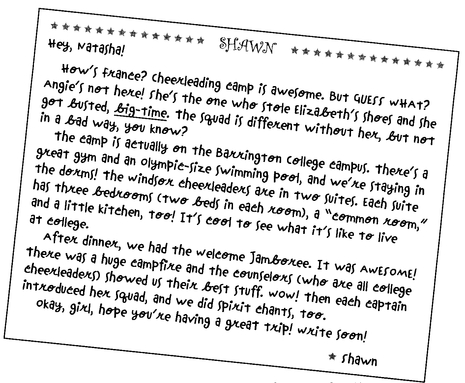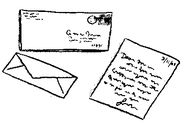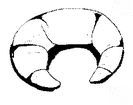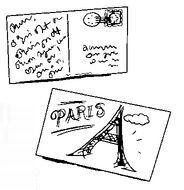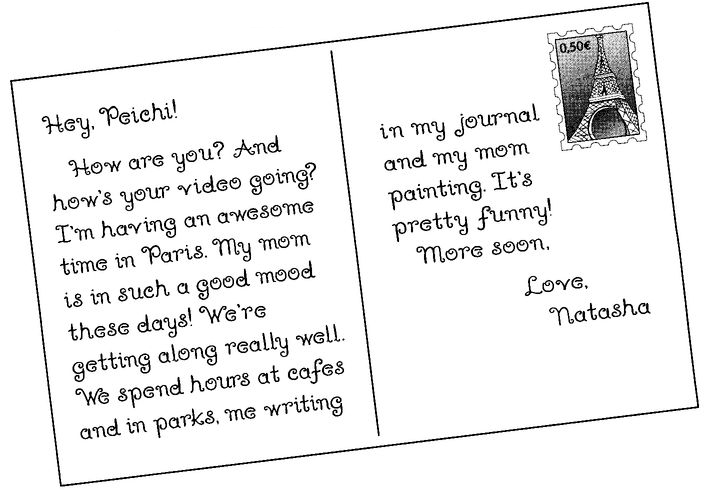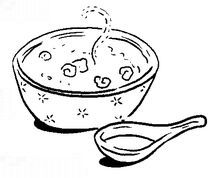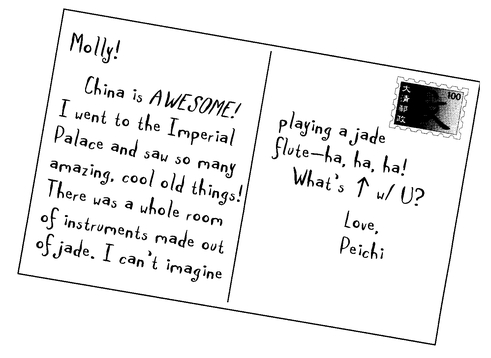chapter 6
Natasha finished reading Shawn’s letter for the second time, then folded it carefully and tucked it inside her journal. She and her mother were staying at L’hôtel Madeleine in the heart of Paris, and every morning a copy of USA Today and a French newspaper called Le Monde were waiting outside their door. Their room had two large beds, a charming windowseat, and a small, roll-top desk, perfect for writing letters. But Natasha’s favorite part of staying at the hotel was checking at the front desk to she if she’d received any mail from her friends!
As she started to pick out an outfit, her mother came out of the bathroom, dressed in a pale pink top and pressed khaki pants.
“Hurry up and finish getting ready, Natasha!” Mrs. Ross said cheerfully, as she sprayed rose-scented perfume onto her neck and wrists. “I think we should go to the Louvre today, and if we want to see the Mona Lisa, we’ll need to get there right when it opens!”
Natasha hurriedly put on a short-sleeved yellow shirt and her white capris as her mother packed her camera bag, adding her small sketchbook and watercolor paints. Within a few minutes, Natasha and her mother were walking briskly down Rue Royale toward Rue de Rivoli, the street on which the Louvre museum is located. They stopped at a small café and ordered fresh croissants and oranqe juice to go so they could have a little breakfast before their busy day started.
“Mmm!”Natasha exclaimed after her first bite of the hot, flaky, buttery croissant. “This is the best croissant I’ve ever had!”
Soon Natasha and her mother had arrived at the Musée du Louvre’s main entrance, a startling glass pyramid that gleamed in the morning sunlight. The pyramid was located in a central courtyard filled with fountains surrounded by a large, palatial building. Even though the museum had just opened, there were several tourists lining up already.
“Natasha, the Louvre used to be a palace,” Mrs. Ross said as she and Natasha started climbing the many steps. “One of the French kings, François I, used it as a storage place for valuable jewels, swords, and scrolls. It didn’t become an art gallery until the French Revolution in 1789, which makes it one of Europe’s first museums.”
“Cool,” Natasha said. “How do you know so much about the Louvre?”
Natasha’s mother laughed. “I practically lived here when I was a student,” she said. “You know I majored in French when I was in college, sweetheart, and I spent a semester in Paris. Somehow the Louvre always seemed like the cultural center of Paris. I always felt so...awed when I was in the Louvre. There are so many great works of art, and the building itself has such a fascinating history.”
“Awed” is a perfect word, Natasha thought, as she looked around at the gleaming parquet floors and high, arched ceilings of the Painting Gallery. Hurrying to keep up with her mother, Natasha could barely glance at the rich colors and textures of the massive oil paintings in their gilded frames. Up ahead, Natasha saw a small crowd standing in front of a familiar painting. There it was—the Mona Lisa!
“Good, the crowd’s not too big yet,” said Mrs. Ross. After about fifteen minutes, she and Natasha were able to get close enough so that they were standing right in front of the famous work of art.
“It’s unbelievable,” Natasha breathed. She’d been to many museums before, but nothing had ever struck her like the Mona Lisa. “I can’t believe I’m seeing the Mona Lisa in person, she whispered, as she gazed at the famous half-smile and the eyes that looked as though they were sharing a secret with her and her alone. It’s so much smaller than I thought it would be! Natasha thought.
Mrs. Ross didn’t respond, but she reached out and gently squeezed Natasha’s shoulder. Together, they admired the famous painting until the impatient crowd forced them to move aside.
“All right!” Mrs. Ross exclaimed, unfolding the glossy map of the Louvre she’d picked up at the Bureau De l’Information in the Hall Napoléon when she’d bought their tickets. “What would you most like to see today, sweetheart? I really think we should come back several times, so there’s no need to rush through it all in a few hours. Would you like to stay in the Painting Gallery, since we’re already here?”
“Sure,” agreed Natasha.
For the next several hours, Mrs. Ross led Natasha through the Painting Gallery, stopping whenever she or Natasha was interested in a painting. Then they would discuss the painting in hushed tones. Since there were more than 6,000 paintings in the Louvre, they didn’t see nearly all of them, but by two o’clock they both felt that lunch was overdue. On their way out, Natasha noticed that the crowd in front of the Mona Lisa had tripled!
Mrs. Ross found a casual bistro on a cool, tree-lined street, where they sat at an outdoor table. A waiter brought them menus, rolling his eyes when he spotted Mrs. Ross’s camera bag. He can tell we’re tourists. Natasha smiled to herself.
“Bonjour, garçon, je voudrais une salade verte, et ma fille voudrait le croque monsieur,” Mrs. Ross said in perfect French, as she ordered a green salad for herself and a French-style ham-and-cheese sandwich for Natasha.
The waiter looked surprised to hear an American speak excellent French. “Oui, Madame,” he said before hurrying off.
“Mom, I didn’t know you could speak French like that.” Natasha said.
“Absolument!” Mrs. Ross replied with a grin. “I don’t get much practice at home, though.”
“Well, I start taking French at school next year,” Natasha offered. “You’ll get a lot of practice when you help me with my homework!” They both laughed.
After their delicious lunch, Natasha and Mrs. Ross walked back along the Rue de Rivoli to the Jardin des Tuileries, one of Paris’ most elegant parks. It’s so different from Prospect Park back in Brooklyn, Natasha thought, as she compared the densely wooded park near her house to the neatly manicured lawns, colorful flowerbeds, and calming fountains of the Jardin des Tuileries. There was a large pond where children floated toy boats and called out to one another. Natasha spotted a vendor selling postcards and bought several for her friends. She and her mother found a shaded bench and sat in the beautiful park, enjoying the balmy afternoon.
Peichi sat with her parents at a tiny table in her grandparents’ kitchen, eating breakfast as everyone discussed how they should spend the day.
“Perhaps the Imperial Palace?” Mrs. Cheng suggested, smiling slyly at Peichi as her daughter’s eyes lit up. Peichi nodded enthusiastically as she chewed her yu za kuai, a fried-dough cruller that was served with a rice porridge called congee.
“Sounds good to me,” Mr. Cheng agreed as he sipped his congee.
“Ah-Puo will be at the shi-ping dian for most of the day,” Mrs. Cheng remarked, referring to the small dry-goods store in which Peichi’s grandmother worked. “And I doubt Ah-Gong wants to go to the Imperial Palace. But I’m sure Jeannette will join us!” Peichi’s grandparents didn’t have a home phone, but they each had their own cell phone, so Mrs. Cheng used one to call Jeannette and tell her about their plans.
An hour later, Peichi and her parents were walking down a busy street filled with buses and cars toward the Imperial Palace. They were meeting Jeannette at Jing Shan, a large, manmade hill that provided a stunning view of the palace and its grounds.
“I still can’t believe how new everything is in Beijing!” Peichi said to her parents, who chuckled.
“Beijing is a modern city,” Mr. Cheng remarked, glancing at the crowded streets that were lined with tall apartment buildings. “Just like New York.”
“I know,” Peichi said. “But I still thought...” She trailed off as they reached Jing Shan and she got her first glimpse of the Imperial Palace. “Wow!”she breathed. “It’s amazing!” She whipped out her parents’ digital video camera and started recording the sprawling palace.
Now a museum, the Imperial Palace was once home to the emperors of China, and its vast, stunning architecture amazed Peichi. She didn’t even notice that Jeannette had joined them until her cousin tapped her on the shoulder.
“Here I am!” announced Jeannette. “Let’s go in.”
Mrs. Cheng read from their guidebook as they walked down the hill toward one of the entrances, Shengwumen. “Shengwumen means Gate of Divine Prowess,” Mrs. Cheng read. “Other gates are called the Meridian Gate, Gate of Peaceful Old Age, and Gate of Supreme Harmony. The Imperial Palace is made up of several halls and palaces, including the Palace of Heavenly Purity, the Palace of Peace and Longevity, and the Hall of Complete Harmony.”
“I like those names,” said Peichi. “They’re so pretty!”
“Names carry great importance in Chinese society.” Jeannette said. “For centuries, people have believed that the wrong name—for a building or a person—can bring misfortune.”
They passed through the Imperial Gardens and, after consulting the guidebook, decided to start their tour in the clock and jewelry hall, where the palace museum exhibited hundreds of intricate clocks and breathtaking jewels.
“Can you imagine wearing one of those necklaces?” Jeannette asked Peichi.
Peichi giggled, remembering the time she had found a stolen jade necklace in her other grandparents’ store in Manhattan’s Chinatown. “Um...sort of,” she answered.
“At one time, up to ten thousand people lived in the Imperial Palace,” Mrs. Cheng read from the brochure as they walked through the Hall of Jewelry. “This is likely the best-preserved display of ancient Chinese culture in the country.”
“Ohmigosh!” squealed Peichi suddenly. “What’s that?” She pointed at a wall that was engraved with nine dragons, each painted a brilliant color and playing with a large jewel as if it were a ball. It was the most amazing piece of artwork Peichi had ever seen.
“Jiulongbi—the Nine Dragons Wall,” Mrs. Cheng replied. For a few moments, the family stood and stared at the astounding wall before they left to explore the many rooms and gardens of the Imperial Palace, including a display of musical instruments made out of jade and the golden Dragon Throne.
After several hours, the Chengs left the Imperial Palace. On their way back to Ah-Puo and Ah-Gong’s apartment, Peichi said to Jeannette, “I can’t believe you live so close to an actual palace!”
Jeannette grinned. “Pretty cool, isn’t it?”
“Completely!” replied Peichi. “Everything here is cool!”
